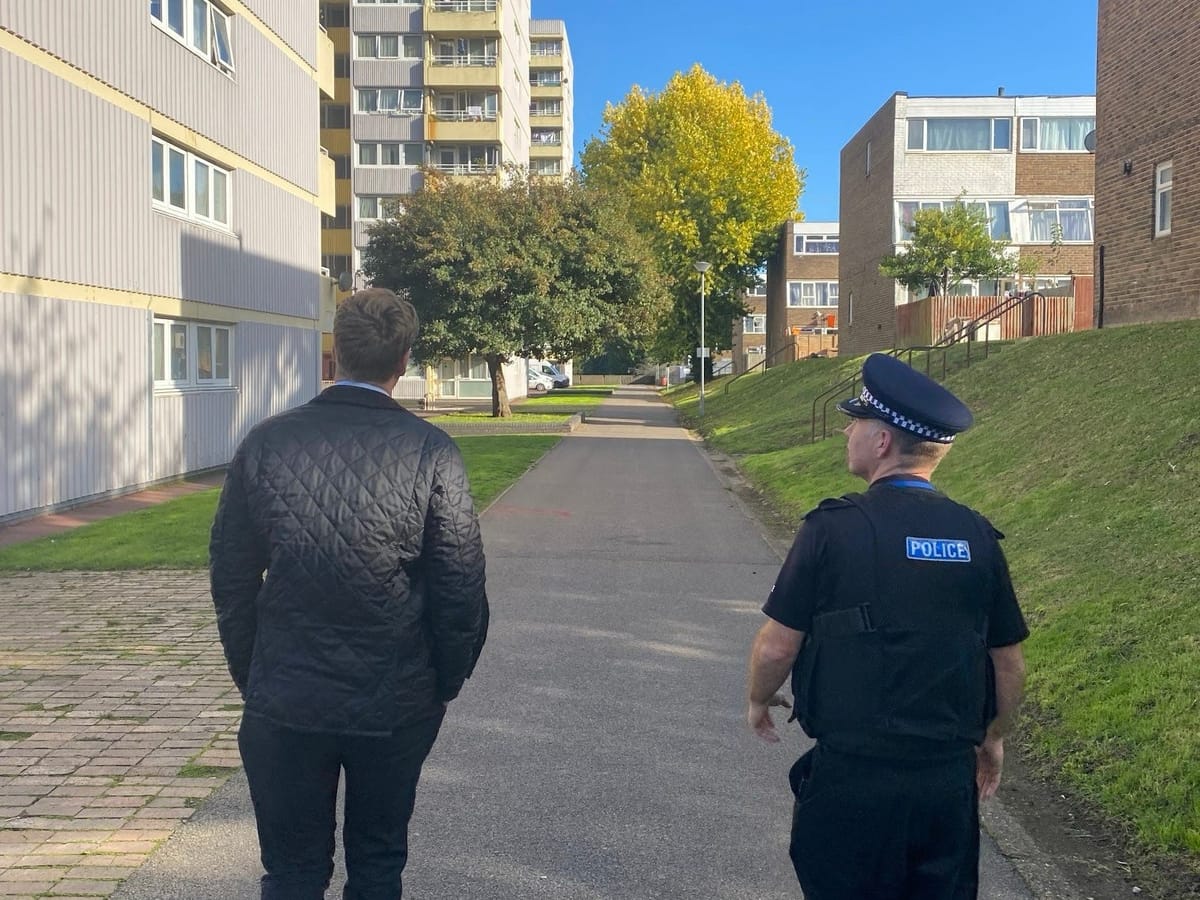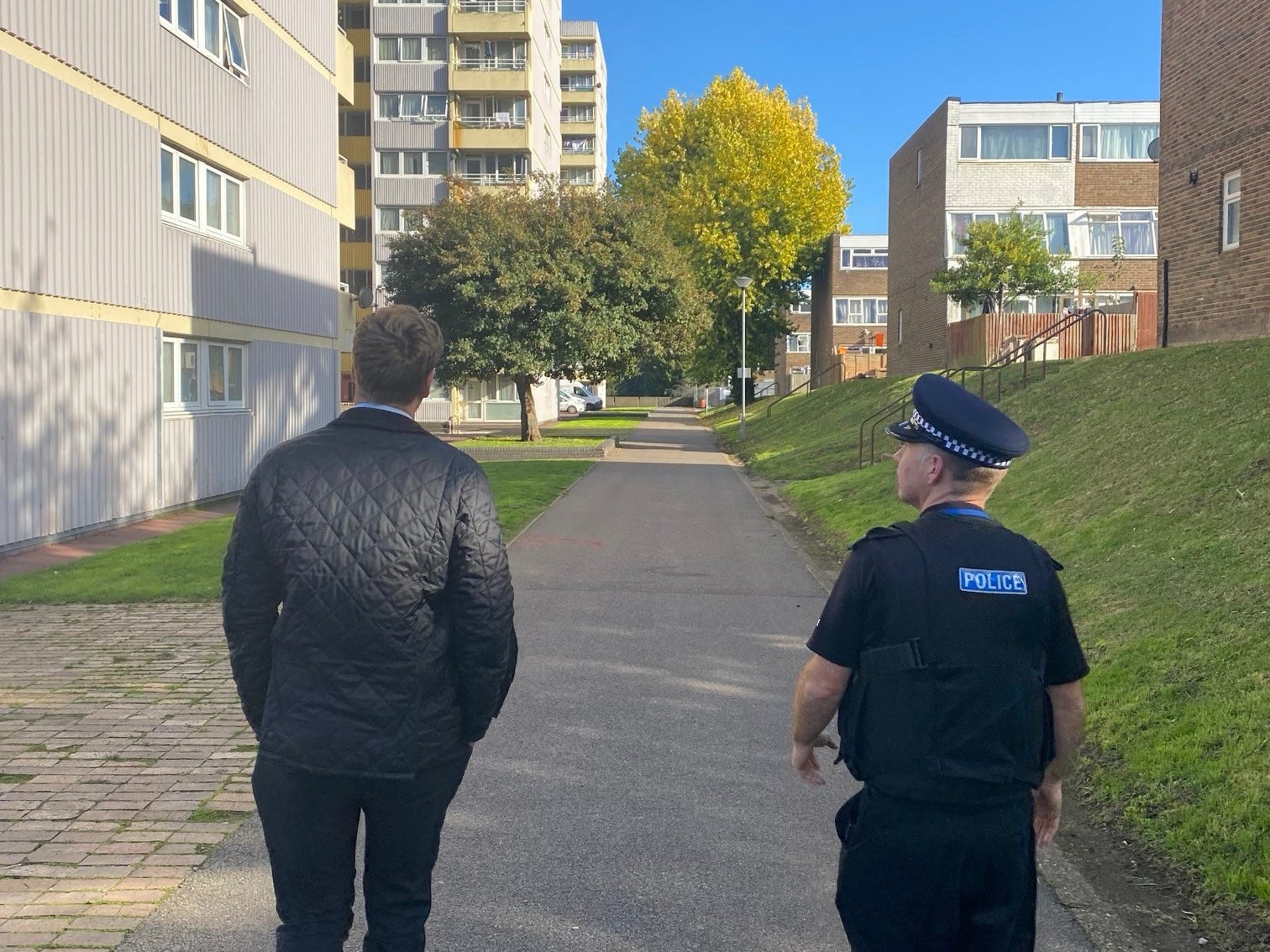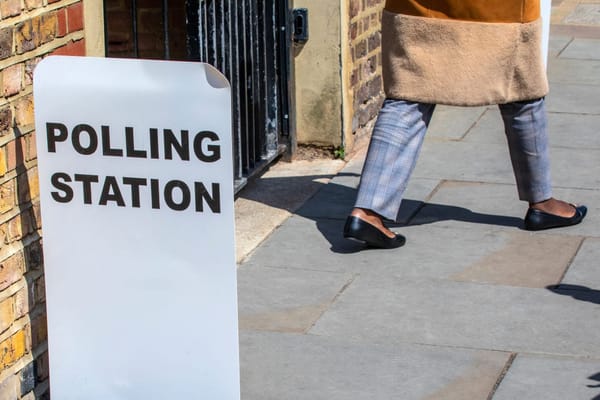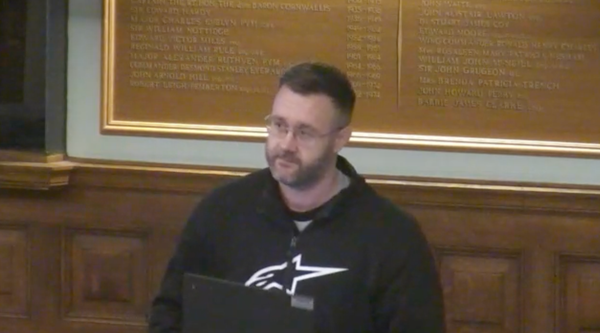Kent to lose its Police Commissioner in 2028
Plus the mega-solar farms of the future, senior staff at Manston suspended, more Reform expulsions, and lots more

Good morning and welcome back to your Monday Kent Current briefing. We hope you managed a quiet weekend, because this week is shaping up to be a busy one for the county. We’re heading into the final days before councils must declare their preferred maps for local government reorganisation, and almost every council in Kent now has multiple meetings on the books to thrash out their positions.
At the same time, the government has confirmed that Police and Crime Commissioners will be scrapped in 2028, making Matthew Scott the last person to hold the role in Kent. It’s a big shift arriving at the exact moment the county is already preparing for major structural change. We’ve broken down what it means, how we got here, and what comes next.
We’ve also pulled together three big reads, from the BBC’s look at the country’s largest solar farm to fresh scrutiny of Manston after senior staff were suspended, and yet more Reform expulsions at County Hall. Plus updates on everything from hospital reopenings to shingle shifts and a new type of Greggs. Let’s get into it.
Catch up
If you missed any of our reporting over the past week, here’s your chance to catch up:
- The FAR Academy is an independent specialist college for those with special educational needs. It is now embroiled in a dispute with Kent County Council that puts them at risk of closure. For our big weekend interview, we sat down with headteacher Brent Lewis to discuss the college's unique work and its current situation.
- With the deadline for local government reorganisation rapidly approaching, councils across the county are putting forward their preferred options for the future, including a range of maps and proposals. We looked at where we are, the latest news from Kent County Council, an unexpected by-election win in Canterbury, and more.
Kent to lose its Police Commissioner in 2028
The government has confirmed it is scrapping Police and Crime Commissioners in 2028, making Matthew Scott the last person to hold the role in Kent. It marks the end of a 13-year experiment in police oversight, and it arrives just as the county prepares for its most significant shake-up of local government in decades.

Why this matters for Kent: Kent has lived with the PCC model since 2012, through two commissioners, four elections and persistent questions about visibility and turnout. Ministers say the system hasn’t delivered, pointing to national polling that shows fewer than one in five people can name their commissioner. Turnout in Kent was 20% at last year’s election.
The Home Office argues that abolishing the system will save £100m over this Parliament, with £20m a year sent directly into frontline policing. For the government, this is a reset. Fewer elections, more officers, and a simplified governance model.
Where things stand: Kent’s PCC history has been unusually visible. Ann Barnes entered the role as a reforming independent but never recovered from the fallout of a Channel 4 documentary that portrayed the office as chaotic. Matthew Scott, now one of the most recognisable Conservatives in the county, stabilised the position, won three elections and built national influence through Home Office boards and police reform work.
Scott has spent recent years warning about court backlogs, rising pressures on police funding and the difficulties caused by unfunded pay rises and national insurance changes. In our interview earlier this year, he was frank about worsening financial challenges and the strain in the broader justice system. Those issues will now be passed to an entirely different accountability structure.
He also confirmed he had been “interested” in a Kent mayoral role when it was under consideration. That option remains possible in the future, but Kent is now on a slower track than most of the country.
The Kent picture: PCC powers will move to mayors “wherever possible,” but Kent doesn’t currently have one and wasn’t included in the recent wave of new mayoralties. Most areas with PCCs will see their powers absorbed smoothly into mayoral offices in 2028. Kent will not.
Instead, the county is expected to start with a Police and Crime Board made up of the leaders of the new unitary councils, a structure that resembles the old police authorities scrapped in 2012 for being weak, low-profile and poorly understood.
A mayor could still come. Once the new councils are created, and depending on when the next round of mayoralty applications opens, Kent could pursue a bid. But that would push the county into a two-stage transition: first into a council-leader board and, later, potentially, into a mayoral model. It leaves Kent running behind most of the country.
The timing is awkward. The PCC role disappears in the same year KCC is dissolved and replaced by new unitaries. Those councils will be building new administrations while simultaneously taking on responsibility for police oversight. Whether they can replicate the clarity and visibility of a single full-time commissioner is far from settled.
Think-tank analysis has already raised concerns. The Police Foundation warns that council-led boards risk returning to the weaknesses of the pre-PCC model: fragmented scrutiny, limited transparency and little public visibility. In Parliament, Sir Roger Gale praised Scott’s record but questioned who would now provide effective oversight in a county without a mayor.
What people are saying: Scott says his priorities “remain unchanged” until 2028. He points to hundreds of extra officers, significant progress against county lines, improved call-handling and rising solve rates for serious offences.
The Association of Police and Crime Commissioners has warned of a “dangerous accountability vacuum.” Police chiefs have taken a steadier line, stressing that strong democratic oversight must remain whichever model replaces PCCs.
What happens next: The Police Reform White Paper, expected later this year, will set out how non-mayoral areas like Kent should navigate the transition. The likely path is a council-leader board in 2028, with an option to switch to a mayoral system later if Kent successfully bids.
Until then, Scott remains in post, Kent Police continues under the current system, and the county prepares for a rare double transition: new councils and a new policing oversight model arriving at the same time.
Three big reads
1️⃣ The largest solar plant in the UK is near Faversham, and has been generating up to 0.7% of the country’s power at times. The BBC examines whether it could serve as a model for future mega-solar projects.
2️⃣ Two senior figures at the Manston processing site for small boat asylum seekers have been suspended pending investigation over misconduct. It is the latest incident following a string of failings at the site, following outbreaks of diseases and even the death of an asylum seeker.
3️⃣ Reform has expelled two further Kent councillors from their ranks. Isabella Kemp, who represents Sheppey, and Maxine Fothergill, who represents Sevenoaks Rural North East, had been suspended following the infamous video leak incident last month.
Council matters
Meetings this week:
- We usually list the most important council meetings of the week here. Still, this week, as the local government reorganisation deadline approaches, there’s a tsunami of meetings across Kent to discuss the issue. Every upper-tier and district council in the county is holding at least one meeting this week to discuss their final position, with some having multiple meetings. This entire edition was going to become a list of meetings about LGR, so we’ll just let you know that they are happening everywhere and leave it at that.
New planning applications:
- Maidstone: Proposals have been submitted for 20 new homes in Tovil.
In brief
🎤 Far-right leader, convicted criminal, and horrible human being, Paul Golding, delivered a speech at an anti-immigration protest in Faversham over the weekend.
🏴 Medway Council has completed the removal of flags across its area, in stark contrast to Kent County Council’s position across the rest of the county.
🌹 Folkestone and Hythe MP Tony Vaughan has come out swinging against his government’s new immigration policy.
🌊 100,000 tonnes of shingle is being moved in Folkestone to protect more than 3,000 homes and businesses from flooding.
⛳ Plans to redevelop Hythe Golf Club could see nearly 300 homes built on the site.
⛽ An abandoned hotel next to the A2 in Gravesend is set to be converted into a petrol and electric charging station and an M&S store.
📖 Kent County Council could be considering library and refuse site closures to balance the budget.
🖌️ Meanwhile, the council has enough money to repaint the lines outside a school on the Isle of Sheppey that closed in 2016.
🎙️ Former Kent County Council leader Roger Gough went on the Kent Politics Podcast to discuss how things are going under KCC’s new administration.
🗣️ Prime Minister Keir Starmer took the opportunity at Prime Minister’s Questions to send sympathies to the people of Kent.
🧑⚕️ Faversham Cottage Hospital is set to reopen next month following a six-month closure.
🏥 Nearly one in three patients attending A&E departments in Kent wait more than 12 hours to be admitted to a ward.
🥧 Greggs has launched their new concept store in Kent. Bitesize Greggs is a miniature version of Greggs in high-footfall areas, with the first one opened in Sevenoaks railway station.
🏛️ Gravesend Borough Market’s experiment in street food is set to end, with the operators pulling out, citing unsustainable costs.
🕹️ Maidstone’s first (and potentially last) VR arcade has closed following a dispute between the owner and Maidstone Borough Council, with the dispute apparently stemming from the owner stopping rent payments.
😮💨 Margate’s Bong Shop has been hit with a one-month closure order following a court hearing.
🚂 The Daily Mail is very excited about a cafe near Ashford where your food is delivered by a tiny train.
🏡 If you want to buy an Art Deco house in Ramsgate with an air raid shelter in the garden, your time has come.
Events this week
📖 Wed 19 Nov - Gerald Dickens: A Christmas Carol // Great-great-grandson of Charles Dickens delivers his one-man show of the Christmas classic. Revelation, Ashford. Tickets £15.
🎤 Thu 20 Nov - Babatunde Aleshe: High Expectations // Award-winning comedian and recent star of Taskmaster brings latest show to the county. Orchard Theatre, Dartford. Tickets £22.
🎸 21 - 22 Nov - Medway Takeover Festival // Legends of the Medway scene converge on Canterbury, including Billy Childish, The Masonics, and James Taylor. Gulbenkian Theatre, Canterbury. Tickets from £15 per night.
Footnotes
Have a Kent story you think we might be interested in? Get in touch via hello(at)kentcurrent(dot)news - We’re always happy to talk off the record in the first instance…
Follow us on social media! We’re on Facebook, BlueSky, and Instagram for now.
Enjoying the Kent Current? Pass it on. If you know someone who’d like this too, forward this email to them and invite them to subscribe.





